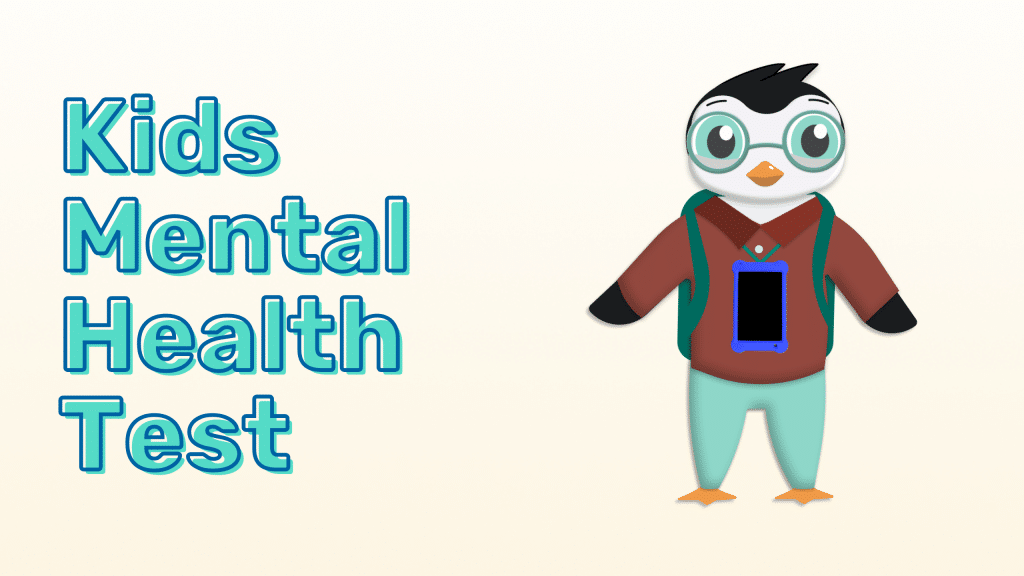Every parent dreams of a healthy, happy child. But navigating the waters can be tricky when it comes to mental health. As caregivers, we must understand the importance of mental health in children and how we can support them. In this guide, we will explore the significance of mental health, signs to look out for, and how a mental health test can help. And don’t miss the interactive quiz towards the end of this blog to answer your question of ‘Does my child have a mental illness?’
Table of Contents
Understanding Mental Health in Kids
Mental health is just as crucial as physical health. In other words, it plays a significant role in a child’s development. Children with good mental health can better manage their emotions, feel positive about themselves, and enjoy life.
Signs of Mental Health Issues in Children
Children express their feelings differently from adults. For example, an anxious child might complain about a stomach ache. Here are some signs to watch out for:
- Changes in behavior
- Difficulty concentrating
- Withdrawal from friends and activities
- Changes in academic performance
Common Mental Health Issues in Kids
- Anxiety disorders
- Attention deficit hyperactivity disorder (ADHD)
- Autism spectrum disorder (ASD)
- Eating disorders
- Mood disorders

Read more: How Does Mindfulness Help?
The Importance of a Mental Health Test
Recognizing the signs is the first step. However, understanding what these signs mean is equally important. This is where a mental health test comes into play. It gives a clearer picture of what’s going on in your child’s mind.
Take the Mental Health Test
Ready to learn more about your child’s mental health? Take our interactive quiz! It’s a simple, easy-to-understand tool that can provide valuable insights.
Supporting Your Child’s Mental Health
Supporting a child’s mental health is not a one-size-fits-all process. It requires understanding, patience, and a lot of love. Here are some strategies that can help:
- Open communication: Encourage your child to express their feelings and assure them it’s okay to talk about anything.
- Healthy lifestyle: A balanced diet, regular physical activity, and adequate sleep can significantly impact mental health.
- Positive reinforcement: Praise your child’s accomplishments, no matter how small they may seem.
- Professional help: If you notice any concerning signs, don’t hesitate to seek professional help.
Read more: Using Positive Affirmations for Kids
Mental health in children is a topic that deserves our attention and understanding. Recognizing the signs of mental health issues and taking appropriate steps, such as a mental health test, can make a significant difference. Remember, you’re not alone in this journey. With the right tools and support, like Goally’s Skill Building Tablet, you can help your child thrive. Here’s to happier, healthier kids!
FAQ’s About Mental Health Test
How do mental health tests benefit children?
Mental health tests can help identify potential issues early, allowing for timely intervention and support for children's well-being.
At what age should children take a mental health test?
Mental health tests are suitable for children of various ages, depending on the specific tool used and the concerns being addressed.
Can parents administer mental health tests at home?
Some mental health tests for children can be administered at home with proper guidance, while others may require professional assistance or supervision.
What types of mental health tests are available for kids?
There are various types of mental health tests for children, including self-report questionnaires, behavioral assessments, and interviews conducted by trained professionals.
How can parents interpret the results of a child's mental health test?
Parents should consult with mental health professionals to interpret test results accurately and develop appropriate strategies for addressing any identified concerns.
This post was originally published on 09/07/2023. It was updated on 04/15/2024.

Goally
We help parents teach their kids life skills, like doing bedtime and morning independently. Backed by science, we incorporate evidence-based practices and expert-informed designs in all of our apps and content.






